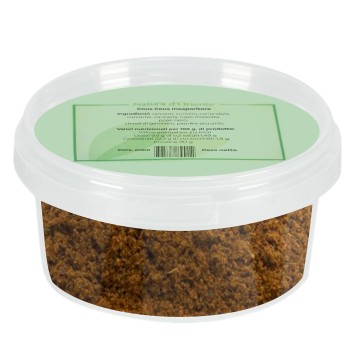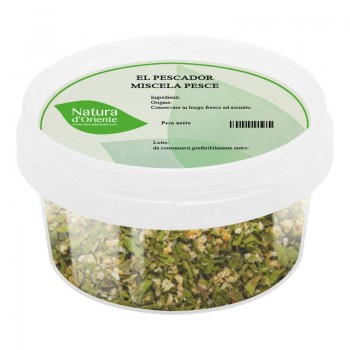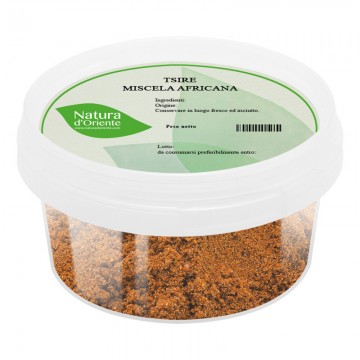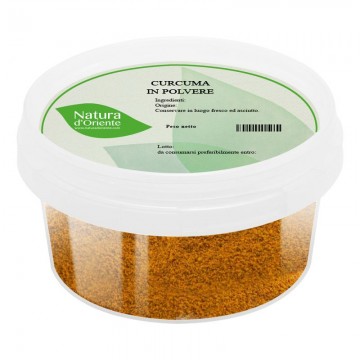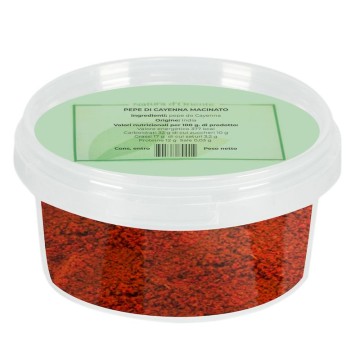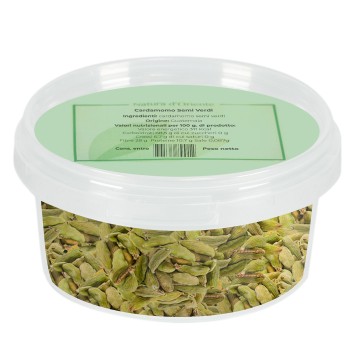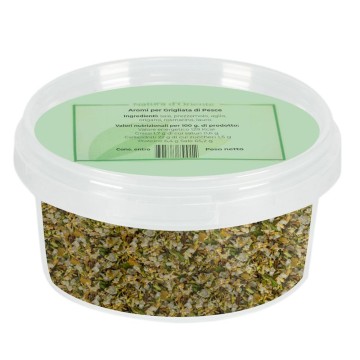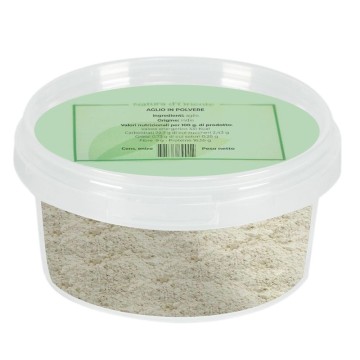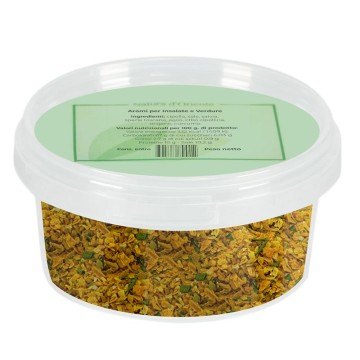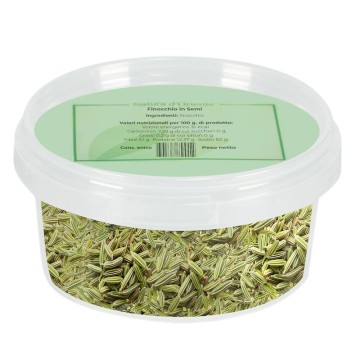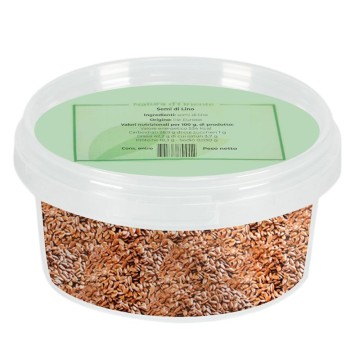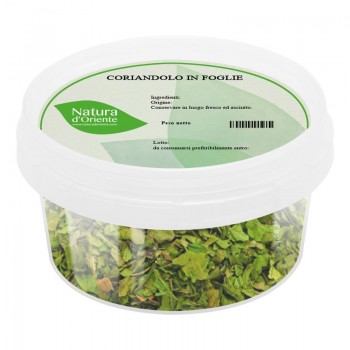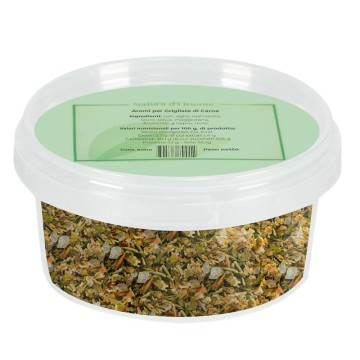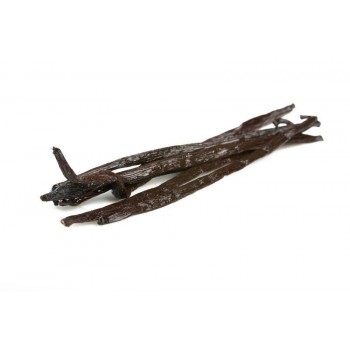Anise seeds: properties and benefits
These oval-shaped seeds are mostly used dried, taking on a grey-brown hue. They give a characteristic sweet and persistent smell, an intense flavor similar to that of liquorice.
Like many spices, anise has been used to flavor foods since ancient times but also for its beneficial qualities in the assimilation of food. Anise seeds are known for their digestive function, promoting regular gastrointestinal motility and gastroprotection.
They help eliminate abdominal and intestinal gas, with a carminative effect, and promote the balance of bacterial flora in the intestine. For this reason, an infusion of anise seeds is useful for deflating the stomach, preventing flatulence and meteorism - especially in synergy with fennel. Anise seeds help reduce stomach acid secretion and irritation, protect the gastric mucosa and relieve stomach cramps. In the herbal tradition, anise seeds have often been used for their laxative and diuretic effects.
Its properties are due to the antioxidant content of anise, which contains essential oil and several bioactive agents - in particular compounds such as flavonoid glycosides and anethole. From an expectorant point of view, anise seeds are used to promote the fluidity of bronchial secretions, for the well-being of the nose and throat. The anethole compound has an expectorant effect that acts on the accumulation of mucus; while the antispasmodic action and mucilage help calm coughs and sore throats.
On a nutritional level, anise seeds are low in calories but contain various minerals including iron, manganese and calcium. As we have mentioned, the main constituents of anise are substances such as anethole, eugenol, estragole, coumarins, estrol, scopoletin. Anise is generally a safe food, but some people may show allergic reactions; especially those who have already experimented with plants of the same family, such as fennel, celery, parsley or dill.
Origins and history of cultivation
Green anise derives from the Pimpinella anisum plant, an annual herbaceous plant that belongs to the Apiaceae family. It gives small white-yellow flowers followed by small oval seeds, from green to yellow. The anise seed, in reality, is the small edible fruit.
Probably native to Asia or the Middle East, today the plant grows in Iran, Turkey, Egypt, India and many other parts of the world with a warm climate – including Italy and the Mediterranean countries. Historically, anise has been known for centuries, and the Egyptians were the first people to discover its benefits. They used anise in tables and to create decoctions against coughs.
The ancient Romans appreciated its digestive qualities, used it as a mucolytic and to treat insomnia (historically it is considered a relaxant). Present at many banquets, it was a delicious element of the wedding cake with aniseed, called mustaceus; as well as being considered an aphrodisiac spice. For many centuries, from ancient Roman tradition, anise seeds were chewed after meals, up to today's herbal teas. In medieval times it was used above all as a remedy against respiratory diseases and to calm headaches.
Use of anise seeds in cooking
Its particular spicy, sweet and fresh taste has always been used to add flavor to desserts and drinks. It evokes menthol and liquorice, and its immediately recognizable aroma is considered an important element in pastry making. Anise is used as a flavoring and aromatic agent for ice cream, desserts, pastries and candies. In home cooking, anise seeds are considered delicious for giving a unique touch to baked goods such as biscuits, bread and buns. Being versatile, anise is also used for savory dishes, such as in fish recipes and on stewed seafood. Also tasty for flavoring the roasting of white meats such as pork and chicken. The seeds give a special aroma to vegetable-based dishes and cheese; they can flavor sauces for meat and fish, and tomato sauces. In some recipes they are also used in risottos. The seeds join dried fruit mixtures for breakfast, and are excellent for flavoring plant-based milk. The best-known drinks with anise are absinthe, sambuca and pastis, in which this ingredient recalls the sweetness of liquorice. The majoritypart of the recipes call for 1 teaspoon of anise seeds, having such a defined flavor. For herbal tea, however, you can use 3-5 grams of anise seeds in a cup of boiling water, for about 10 minutes to infuse. In spice combinations, anise pairs well with: fennel seeds, cardamom, star anise, cinnamon, cloves, cumin, coriander, nutmeg and allspice.
Aniseed biscuits
Ingredients: 2 fresh eggs 220 g of icing sugar - 275 g of white flour - 1 tablespoon of anise seeds – salt to taste. - melted butter Preparation Place the eggs, icing sugar and a pinch of salt in a bowl. Mix using the whisk until the mixture becomes lighter.
Mix the flour with the anise seeds, add them to the bowl and mix into the mixture. Cover and place in the fridge for about 30 minutes. After half an hour, spread a little butter on two baking trays.
Roll out the dough into 1cm thick portions between two sheets of baking paper. Cut out your favorite anise biscuit shapes and arrange them on the baking trays. Leave the biscuits to dry at room temperature for about 12 hours.
Turn on the oven, preheated to 140°C, and cook the biscuits in the oven for about 20 minutes per tray, in the lower part of the oven. Remove from the oven and let the biscuits cool. Remove them from the pan with the help of a spatula, and leave them to cool on a rack.

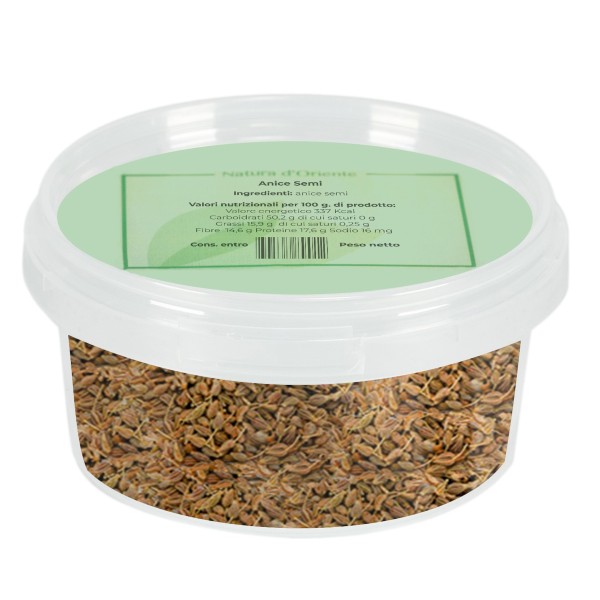







 No reward points for this product.
No reward points for this product.
